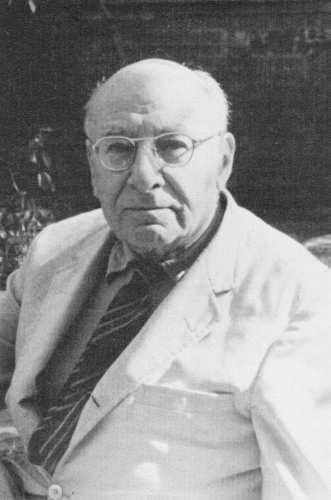PsicoNeuroAndndocrinoImmunologia:
“Disciplina che studia le relazioni bidirezionali tra psiche e sistemi biologici. In PNEI converge, within a single model, conoscenzeacquisite, since the thirties of the 20th century., dall'endocrinologia, dall’immunologia edalle neuroscienze”.
Historical Aspects.
In 1936, Hans Selye dimostròche the stress reaction (→ stress and adaptation) is independent of the nature of the stimulus. Ricerche successive rafforzarono il concetto dimostrando che lo stress puòessere attivato da fattori fisici, infettivi, psichici. Indipendentemente dal tipo di agente stressante, si attiva una reazione neuroendocrina e neurovegetativa che libera ormoni e neurotrasmettitori dalle surrenali. A metàdegli anni Settanta, il fisiologo tedesco Hugo Besedovsky dimostròche la reazione di stress, con l’aumento della produzione del cortisolo da parte delle surrenali, causa una soppressione della risposta immunitaria.
Fu stabilito cosìil primo collegamento biologico tra cervello, stress e immunità Nella seconda metà degli anni Ottanta, il fisiologo statunitense Edween Blalock demonstrated that lymphocytes have receptors for hormones and neurotransmitters produced by the brain and that, at the same time, produce hormones and neurotransmitters quite similar to those brain. It was thus demonstrated bidirectional communication between the brain and immunity.
Recent advances.
Estado demonstrated that peripheral nerve fibers, those that innervate the entire organism, release substances (neuropeptides) that activate or suppress the immune response, thereby showing for the first time, possibilitàche the inflammation has an origin nervous (neurogenic inflammation).
At the same time it is now clear that cytokines released by immune cells, traveling with blood or with large cranial nerves (as the vagus nerve), are able to carry signals from inside the brain, and therefore influence both attivitàbiologiche (fever, hunger, satiety etc..) both the psychological (anxiety, trough). The nineties have seen a significant growth of studies on the neurobiology of emotions. The dysregulation of the stress system by emotions, trauma and stressful events in general, powerfully alters the structure and functioning of the immune system.
If in the short term, the cortisol, adrenaline and noradrenaline (catecholamines) also have a tonic effect on immunity, in the medium to long term these substances placed the immune response of a position unsuitable to combat viruses and tumors. Similarly, the dysregulation of the stress puòfavorire the development of autoimmune diseases of various types. At the end of the nineties of the last century, the work of the American neuroscientist Robert Sapolsky and others have demonstrated that the alteration of the stress system and overproduction of cortisol can cause atrophy of the hippocampus, brain area deputed to formation of long-term memory. Studies of the first decade of the twenty-first century show that even diseases like atherosclerosis and heart disease in are usually strongly affected the mood: depression, with the overproduction of cortisol and catecholamines, contributes to alter the wall internal vessel, favoring the formation of the atherosclerotic lesion. So certain heart attacks and other acute cardiac events, in the presence of mood disorders, can be explained by the vascular changes produced by catecholamines and by the imbalance in the serotonin system, the concentration of which decreases in brain, with a depressive, while in the blood increases with increase of the effects of platelet aggregation (prothrombotic effects). Finally, of research first decade of the present century, especially at the hands of the psychiatrist Michael Maes Belgian and French neurobiologist Robert Dantzer, have shown that immune dysregulation in a sense may be responsible for inflammatory symptoms that traditionally is referred to 'disorders somatization 'as well as the typical symptoms' psychosomatic', accompanying disorders is they are dealing with psychology and psychiatry (anxiety, trough, chronic fatigue syndrome) both medical disorders that are more properly (autoimmune diseases, cancer).
Prospects. With PNEI is to profile a model of research and interpretation of health and disease that sees the human body as a unit structured and interconnected, where the psychic systems and biological conditions the other. This provides the basis for new integrated approaches to envisage prevention and therapy of diseases piùcomuni, especially of chronic and, at the same time, configures, allowing to go beyond the historical philosophical opposition between mind and body as well as the scientific, twentieth-century, between medicine and psychology, overcoming their reductionism, that assigned to the first body and psyche to the second.
Francesco Bottaccioli
(item Treccani Medicine, vol 3, Brain Mind Psyche, Rome 2010)
Taken from the site of SIPNEI Societa Italiana di Psiconeuroendocrinoimmunologia.





